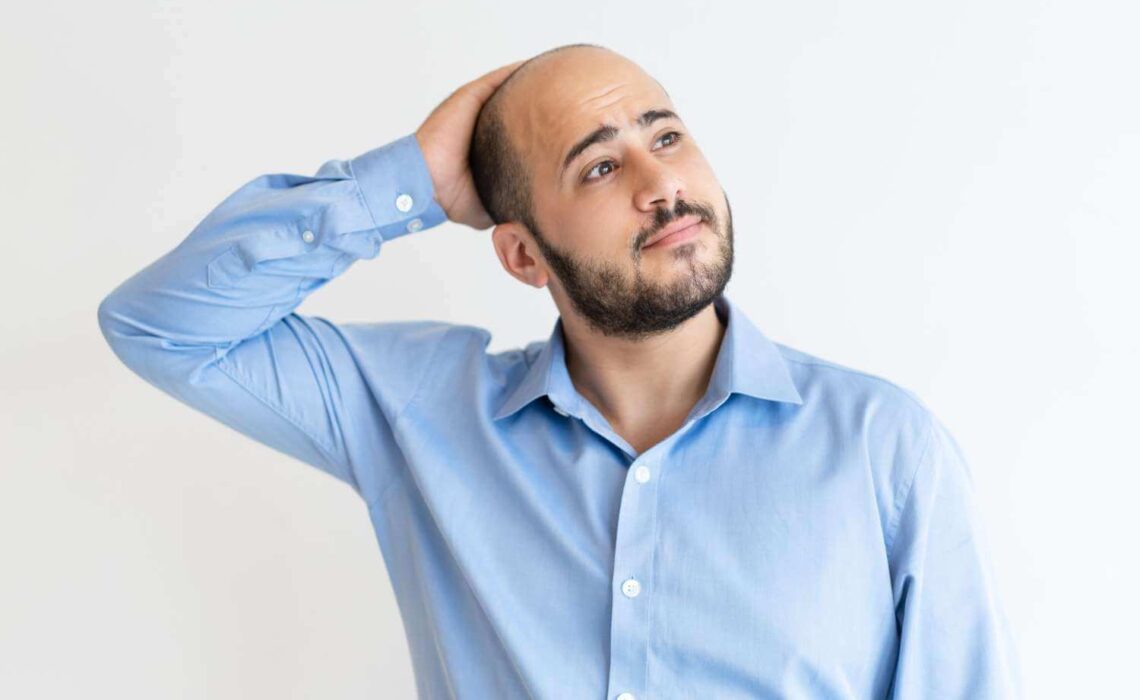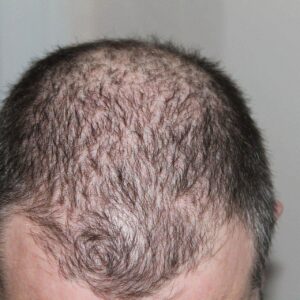Hair transplantation first started nearly 60 years ago, and it has evolved over the decades. It’s worth noting that hair transplantation doesn’t just refer to moving hair from one part of the scalp to another part on the scalp but also includes techniques such as using body hair or beard hair as donor material.
The general idea behind a successful hair transplant is to move hair from a donor site, where the hair growth cycle is still active and healthy. And take it to a recipient area where the hair follicles have been damaged or lost due to male pattern baldness or other factors.
In most cases of male pattern baldness, these areas are limited to the front and top of the scalp, whereas the hair at the back and sides of the head are generally largely unaffected. Hair transplantation surgery is designed to move hair from these healthy areas to the recipient site.
The transplanted hair will grow just like it did at its original home; all you need is to give it time for hair transplant to heal. It means that you’re likely to retain an overall density of around 80% of your original hair.
This guide will help explore the following topics: What is a hair transplant? How much does a hair transplant cost? Is there a way to predict how long you will retain your transplanted hair?
What do Hair Transplants Do?
The general idea of hair transplants is reasonably straightforward, but they are often much more complex than one might imagine. Hair is moved from a donor site (usually the rear and sides of the scalp) to a recipient site (typically the front and top of the scalp), where it can grow in much healthier conditions.
When hair loss takes place, it’s because your body stops moving hair through its growth cycle at the same rate, so your hair falls out. When you have a hair transplant, the transplanted hair will fall out before the native hair because it’s moving through its growth cycle faster. However, once the transplanted hair falls out, your body will restart and grow healthy new native hair.
How Much Does a Hair Transplant Cost?
You can expect to pay anywhere between $3000 – $15,000 for one hair transplant session. Of course, this is the average cost, and prices vary depending on who you decide to go with.
Is There a Way to Predict How Long Transplanted Hair Will Last?
Unfortunately, there isn’t a foolproof way to say how long your transplanted hair will last in the long term. There are certainly estimates that you can consider when planning, but there is no exact science in this field yet.
We expect most results to last between 10-15 years on average. It varies depending on factors like:
- Dosage (how much hair was transplanted and how thick it is)
- Patient’s age Hair transplant surgeon
- Experience with that particular patient
This is why we recommend you do as much research as possible before committing to a procedure and strongly suggest booking a consultation appointment with the best cosmetic surgery Dubai.
Factors to consider before settling for a hair transplant surgeon:
1. Staff qualifications and training
These qualifications are not typically something you can find online, so it’s best to ask your potential surgeon directly what they have done to broaden their knowledge of the field. This might include training courses or membership in relevant associations.
2. Experience level
Many surgeons perform hair transplants with reasonable success rates, but there is a world of difference between a surgeon who has performed thousands of successful transplants and one who might be new to the field.
We understand that you might not want to go for a highly experienced surgeon if you’re looking to save money, but we would strongly recommend going with someone who is more advanced in their career and has good reviews from past clients.
3. Your relationship with your surgeon
Interactions before and after surgery can significantly impact the final results you receive. This is why we strongly recommend choosing someone who will make changes to their schedule to accommodate your needs during both these stages. For example, if you require extra time or attention from your doctor, they should be willing to give it to you.
4. Clinic facilities

You should find out what kind of facility your potential surgeon uses for their treatments, but generally speaking, you will want the cleanest and most advanced places possible. It will ensure you are under the best conditions possible while getting treated.
5. Location
If you’re traveling for surgery, the location of your potential surgeon should be high up on your list of priorities. We recommend staying close to the clinic while recovering to ensure quick access if anything goes wrong (for example, some medications might not be available at pharmacies near your hotel).
Conclusion
Finding the best hair transplant surgeon can be a challenge, but it is worth putting in the time and effort. Not only will you get better results, but they will also last longer when done by someone qualified to handle this type of surgery.
- How To Create A Safe And Comfortable Home Environment For In-Home Care In Boca Raton? - July 16, 2024
- 10 Trendy Black Nail Ideas To Elevate Your Nail Game - May 6, 2024
- Getting A Free Divorce In Virginia? Here’s What To Expect - April 24, 2024







No Comments